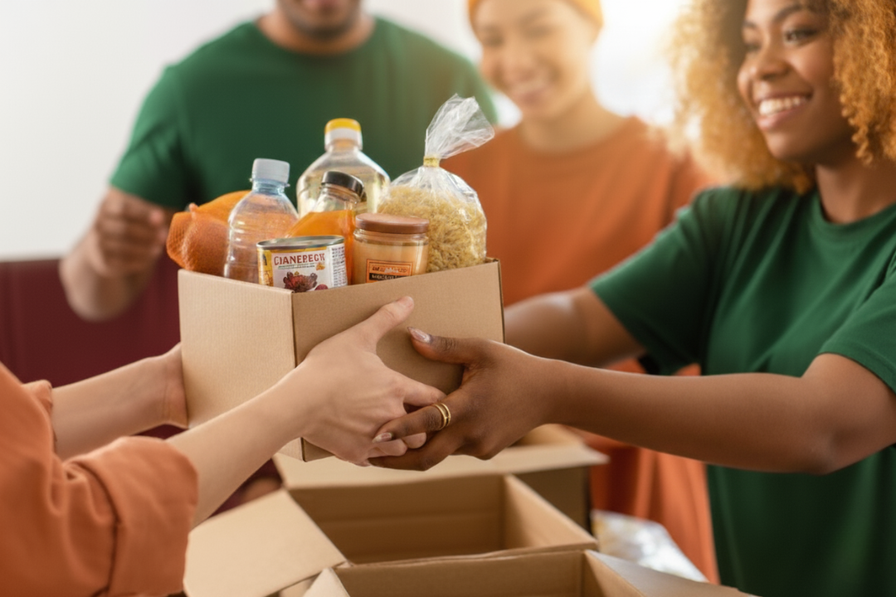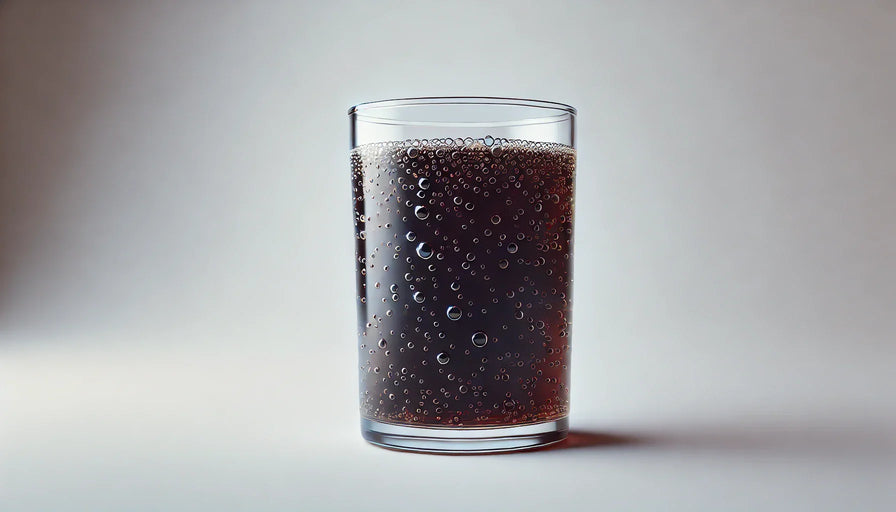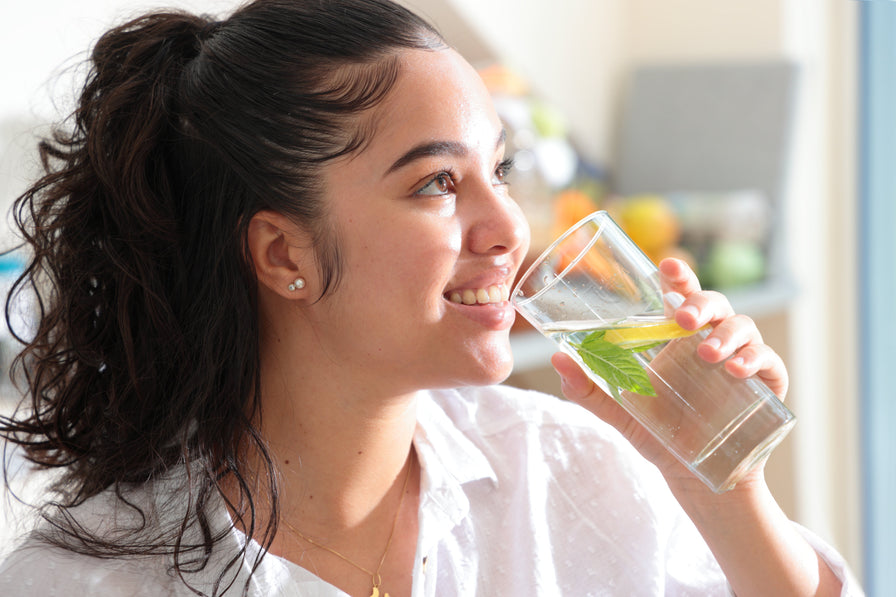
Does Cold Water Carbonate Better?

Does cold water carbonate better?
Yes, cold water carbonates much better than warm water. This is because gases, like carbon dioxide, dissolve more easily and in greater quantities in colder liquids, resulting in fizzier, longer-lasting carbonation.
If you're searching this, it's probably because you heard somewhere, whether from a know-it-all friend or a video on TikTok (I would fact-check some of what I see online, too, if I were you!), that water carbonates better when cold.
For anyone who enjoys sparkling water, seltzer, or homemade soda, understanding the role of temperature is key to achieving the best results.
Surprisingly, the fizziness in your favorite drink isn't just a matter of how much CO2 you use, but also the conditions under which it's dissolved.
This post will explore why cold water is the ideal choice for carbonation and how you can use this knowledge to make better sparkling beverages. Bonus, it's a fun fact to bust out at parties where you're pouring out a cold soda for your friends!
Table of contents
The science behind gas dissolving in cold water
Henry's Law explains the relationship between temperature and gas solubility. According to this principle, the amount of gas that dissolves in a liquid is directly proportional to the gas's pressure above the liquid. However, temperature plays a key role in this process.
When liquids are cold, gas molecules have less kinetic energy, moving more slowly. This makes it easier for the liquid to "trap" them.
In contrast, warmer water causes gas molecules to become more energetic and escape the liquid's surface faster, resulting in less dissolved gas and a less fizzy drink.
Can I still carbonate water that is not cold?
Yes, you can carbonate water that isn’t cold, but the process tends to be less efficient. At the end of the day, water is water, so you can carbonate it using your soda maker regardless.
When water is warm, its ability to retain dissolved gas diminishes, meaning you’ll need to use more carbon dioxide to achieve the same level of fizziness compared to cold water.
Additionally, warmer water may release the gas more quickly, making it harder to maintain a consistent level of carbonation.
For best results, it’s generally recommended to carbonate water that has been chilled beforehand, as this optimizes the solubility of carbon dioxide and ensures a more satisfying and longer-lasting carbonation.
We recommend having at least two soda maker bottles at a time so you can always keep one cold in the fridge while you bubble the other. Not all soda makers have the same water bottles, though, so please make sure to order the correct bottle for your soda maker.
What is the ideal temperature for carbonating water?
For the best carbonation results, water should be as cold as possible without freezing. The ideal temperature range is typically between 34°F and 40°F (1°C to 4°C).
Chilling your water in the refrigerator for at least a few hours before carbonating will make a noticeable difference in the quality of the fizz.
Storing a pitcher of water in the fridge ensures you always have cold water ready for your home soda maker. This simple step maximizes the water's ability to absorb and retain CO2, giving you crisp, highly carbonated results every time.
Does warming a carbonated drink make it go flat faster?
Yes, warming a carbonated beverage will cause it to lose its fizziness more quickly, although I'm not sure who would desire a warm glass of Pepsi. If that's you, I'd personally like to meet you and ask you a few questions.
When the liquid's temperature increases, the dissolved CO2 molecules gain energy, move faster, and escape from the liquid more quickly.
This explains why a soda left at room temperature or in the sun loses its fizz much faster than one stored in the refrigerator or on ice. To maintain carbonation for longer, it's best to keep sparkling beverages cold.
I personally like to use an insulated, sealable bottle to keep my bubbly drinks extra crispy and cold!
Carbonating vs infusing
Carbonating involves dissolving carbon dioxide gas (CO2) into a liquid under pressure, creating those fizzy bubbles that enhance the drinking experience.
This is most commonly seen in sodas, sparkling waters, and even some beers.
Infusing focuses on incorporating flavors into a liquid, typically by steeping or mixing ingredients such as fruits, herbs, or spices. Some people will describe carbon dioxide as "infusing" the water with bubbles. This definitely paints a picture, but the more accurate word is "dissolving."
While infusion adds depth and complexity to the taste without altering the texture, carbonation creates those actual bubbles you can both see and feel.
But hey, don't take one over the other! You can absolutely carbonate your water, then infuse it overnight in the fridge with fruits or flavors for a truly carbonated and infused beverage.
Summary
Alright, let's take a recap here! The temperature of water plays a crucial role in the effectiveness of carbonation. Cold water is far superior for creating sparkling beverages because gases like carbon dioxide dissolve more readily and faster in colder liquids.
For optimal fizz in your homemade sodas and sparkling beverages, water should be chilled to just above freezing, typically between 34°F and 40°F (1°C to 4°C). And no, you don't need to gauge the temperature in real-time, just use cold fridge water!
While you still can technically carbonate warmer water, the result will be a less fizzy drink that goes flat quickly. Instead, by always using cold water, you can ensure your homemade sparkling water and sodas have a crisp, tasty, and long-lasting carbonation.
Recommended reading

How to Give Back During Thanksgiving 2025
Key takeaways Thanksgiving is a time to express gratitude and share with those in need. From volunteering at local shelters to donating food and essentials, there are numerous ways to give back to...

What Does Carbonation Do to Your Body?
What does carbonation do to your body? Carbonation alone typically has minimal effects; however, it can cause bloating and discomfort for some, and it may worsen acid reflux due to carbon dioxide ...

What Are the Health Benefits of Sparkling Water?
Summary Sparkling water isn't just a refreshing drink—it comes with surprising health benefits too. From aiding digestion to improving hydration, discover how sparkling water can be a healthy addi...